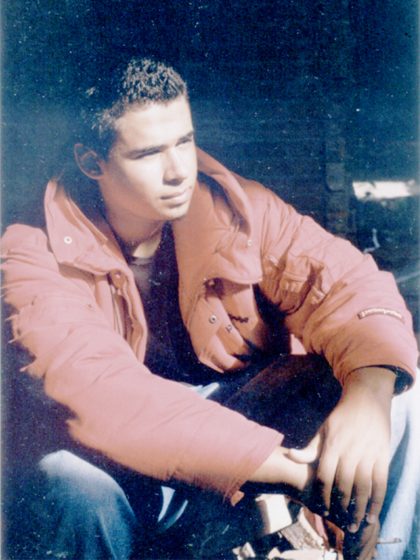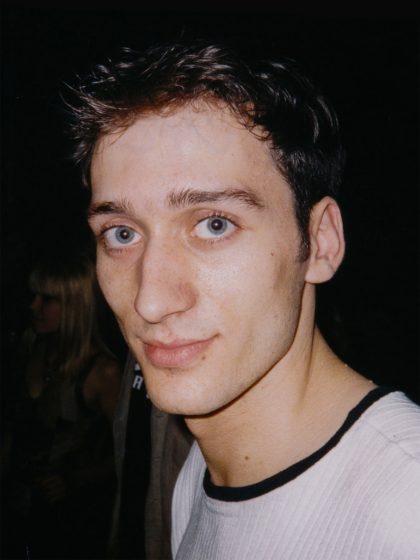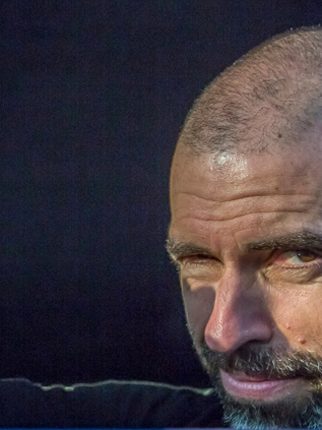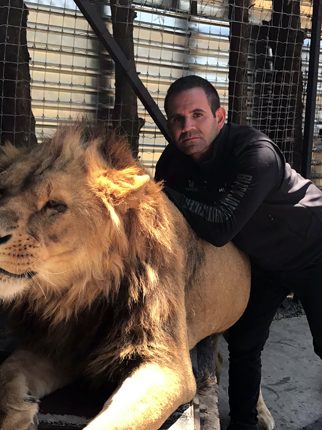The Night I Fell in Love With Dance Music: Mick Cole
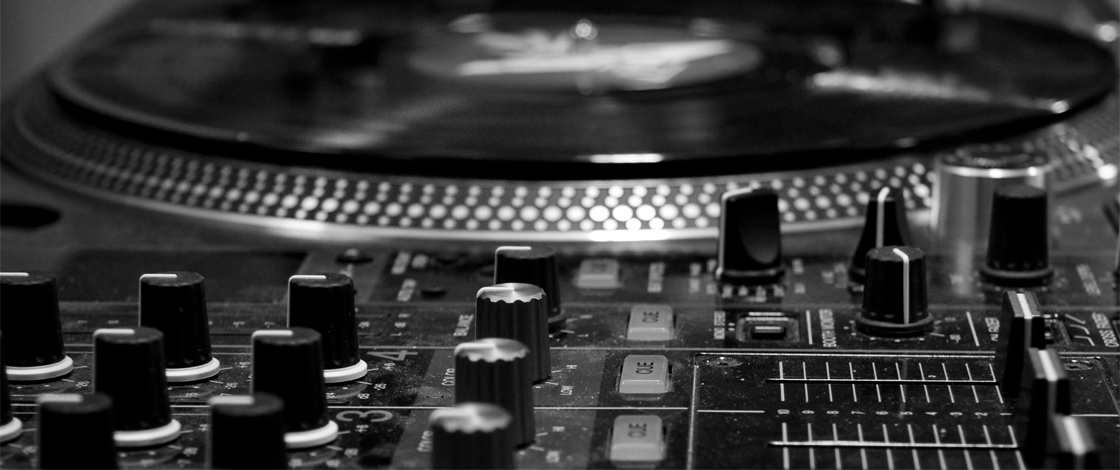
There was a time in the early ‘90s when you couldn’t be anywhere that had anything to do with dance music without bumping into Mick Cole. Flipping through the bins at an independent dance music record store, or on the dancefloor, on Friday at Frequency, on Saturday at Truth, Sunday day at Sketch Pad and Sunday night at Sunday Love, if there was dance music being played, Cole was there. The British transplant and Los Angeles nightlife fixture is ingrained into the city’s history with the music. And Cole has done his fair share of contributing to the scene.
“That was the turning point. Andrew Weatherall was DJing, and somebody from Boy’s Own, and that switched me on. After those two experiences, it was all over.”
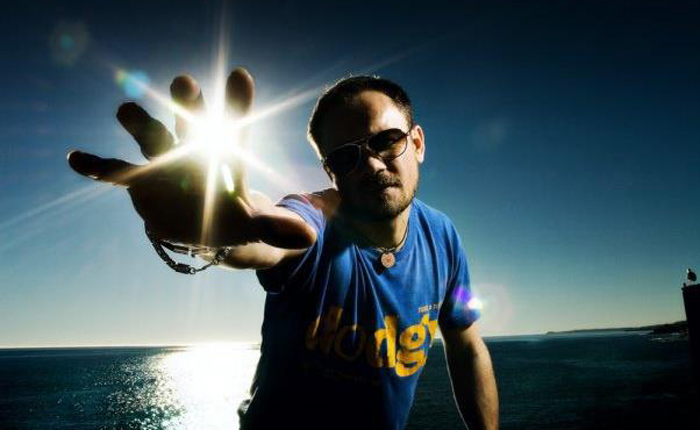
Some 20 years ago, when dance music was close-knit enough in Los Angeles for its participants to see each other a few times a week, Cole saw a need for a place where they could actually chat instead of shouting over the music—but still have the music be a centerpiece for the experience. He started the Monday Social, loosely named after the Chemical Brothers’ (Dust Brothers at the time) Sunday night event at a tiny pub in London, the Sunday Social. Held at Louis XIV, a small French restaurant at the intersection of La Brea and Beverly, Cole offered great food, great drinks, great company, and great music. He hosted an unheard-of roster of talent, one that would play a festival or a massive club on the weekend, stay through to Monday, and bring those same records down to play them for the intimate crowd at the Social.
Cole’s promotional expertise reached to the Viper Room’s Tuesday weekly, Atmosphere, where he continued his hosting duties to an equally jaw-dropping list of names. He carried this through to working with Goldenvoice and their Friday night, Frequency, again hosting the elite of dance music week in and week out. All the while, Cole was running the American offices of deConstruction, at that time the strongest independent dance music label in the UK. He took his skills to the cyber airwaves at Groove Radio, hosting a show with his Monday Social cohort Freddy Be, and at Spike Radio, where he and I featured an eclectic range of music and guests. In the mid-2000s, Cole created an Ibiza for Los Angeles at Moonshadows in Malibu, playing breezy tunes on the Pacific Ocean-facing Blue Lounge deck of the tasteful restaurant—and continues to do so most days of the week, from the early evening until late.
His original venture, Monday Social, is still going strong, hitting its two-decade mark this summer. To date, it has moved locations six times, from Louis XIV to Las Palmas to Nacional to Playhouse to Sound, and landing at Project LA. The night has gone through a facelift at each location, but at its core, it is still the friendly and hospitable start to the week where the music is the driving force.
How did you first get exposed to dance music?
I moved to Los Angeles in 1987. Prior to that, I was listening to the Smiths, New Order, a lot of Manchester bands. I would go to Brixton Academy and hear reggae. Also, my dad owned a legendary nightclub—a really famous one in the rural areas, because it was on the road between London and Oxford—called Whispers, then Stages, then Stages 2. My friends and I would do a night upstairs in an alternative room, where we would play soul, R&B, funk and reggae.
When I left, England was embarking on the Second Summer of Love. The guys I was hanging around with, they started sending me acid house tapes, stuff I hadn’t heard of. I didn’t really like it. I didn’t know what it was; I didn’t know what the scene was.
What made you like what you were hearing?
I went back Christmas of 1989 to take my [now] wife to meet my parents and show her England. By that time, the scene had taken off, and there were all these great things going on. Christmas Eve, we went to a party at a local pub where my friends were playing this music. It was a cross between Italian house and disco—Deee-Lite and Andrew Weatherall. It was a mishmash. On New Year’s Eve, they took us to a Flying Records party, which was a record label at the time, in London. They used to do a night in a basement in Soho, air conditioning pipes and water pipes dripping everywhere. It was really raw, with a techno-house sound. I liked it, but I didn’t really get it—until someone gave me… at the time, it was called a White Dove. That was the turning point. Andrew Weatherall was DJing, and somebody from Boy’s Own, and that switched me on. After those two experiences, it was all over.
“There was a generation of people that came to Monday Social for five, six, seven years at Louis XIV… We’ve had five generations of ravers.”
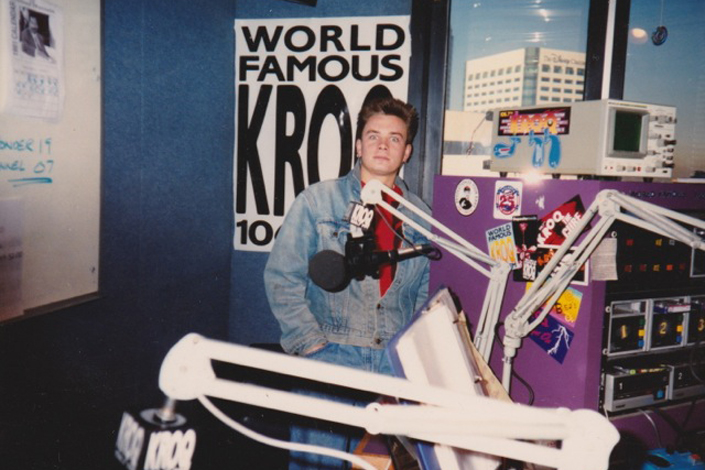
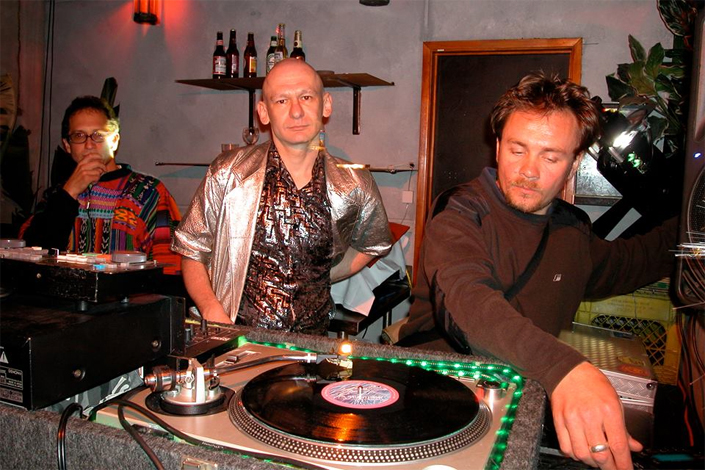
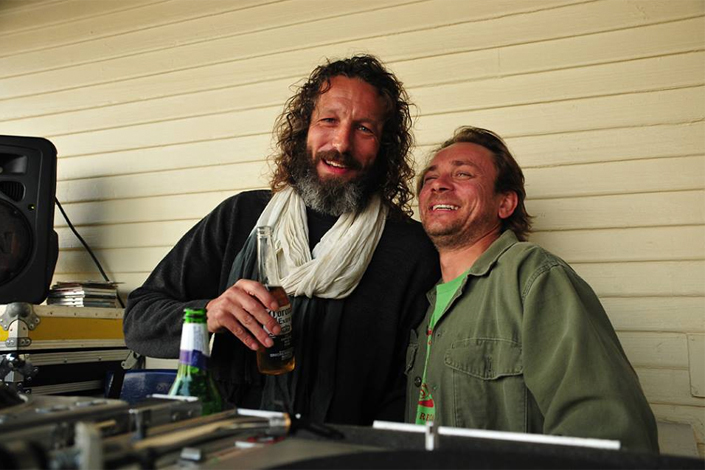
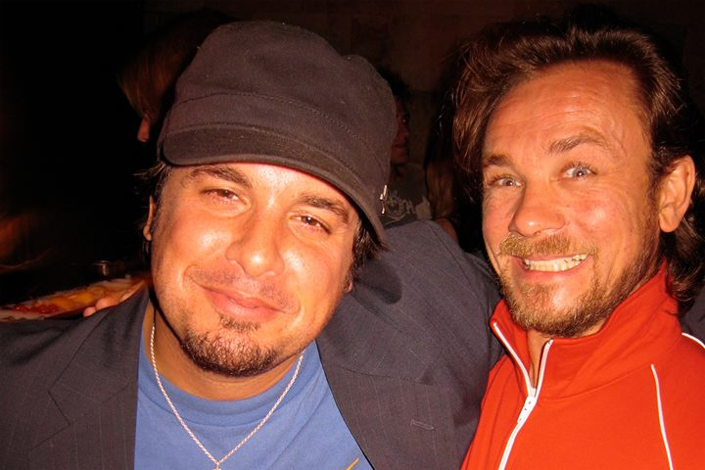
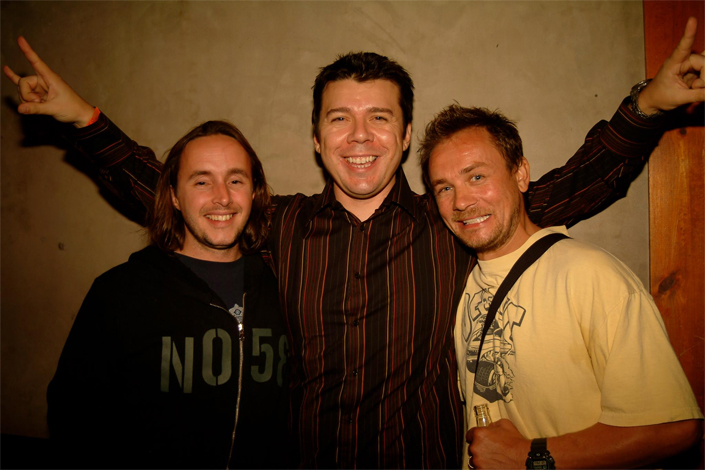
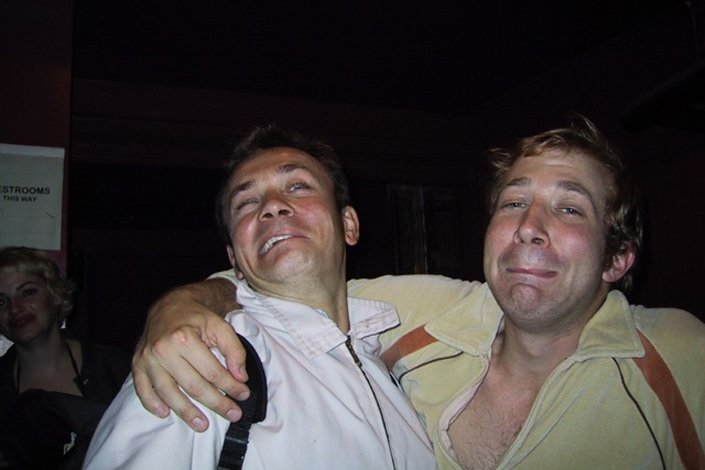
How did that pan out once you came back to Los Angeles?
I was living in the Valley, and I started going over the hill. I was looking for what I’d heard in England. I was going to regular record shops asking, “Where can I find this Italian house music?” Nobody knew what it was, and finally somebody said, “You might want to try Prime Cuts Records.” That was where I stumbled into Doc Martin. He loaded me up. The next stop was the pawnshop next door to see if I could find some turntables. I didn’t even know what sort of turntables I was looking for. I bought these mismatched things. One didn’t have pitch control—it was a home stereo record player—and another one had slight pitch control. I found an old mixer and started playing around with those. I was so obsessed with the music. I had started working at Hollywood Records and was trying to get them to do house remixes, but it didn’t work for their sound. Through that, I started at KROQ. I met Swedish Egil and helped him produce some of his shows. People there appreciated what I was bringing to the table. Egil was the person that inspired me to see where the potential of this music was.
How did you move into the promoting side of things?
I would follow five DJs: Mark Lewis, Michael Cook, Doc Martin, Steve Loria, and Marques Wyatt. It was mostly English people running the nights: Truth, Flammable Liquid, Sunday Love. There was definitely an English footprint here. After Doc and I established a relationship, I asked him if he would be interested in me manufacturing his mixtapes. I had the top five clients in L.A. Doc would make a sleeve by hand. I would go to the photocopiers, then the tape duplicators, and run 10 at a time until I had 100. And they would sell them at the shops: Prime Cuts, Street Sound, and later, Steve Loria’s Beat Non Stop, and even in Orange County at Simply Jeff’s and Ron D Core’s Dr. Freecloud’s Mixing Lab.
I saw the promotional/marketing aspect of this music and how I could get involved. I loved music, but I didn’t know how to program properly. I wasn’t skilled enough to be a DJ—especially this kind of DJing with seamless mixing and concentration, not slapping one after the other like I was used to. There was a skill and an art that blew me away.
Then I got into the flyer business—flyer runs and street promotion and marketing for the clubs. I still had my job at Hollywood Records, but I was running around every night, putting flyers on cars for pennies, just so I could be part of the thing.
How did that evolve into you doing your own night?
When I started getting involved a bit more, I wanted to start putting on events. That required capital I didn’t have, so we started doing an industry lounge party at Louis XIV on Mondays. Monday Social wasn’t designed to make money; it was a social. Even though we were out at the clubs on the weekend, there was never really any place that was like a pub to just go, have a couple of beers, sit, and talk about the weekend past or the weekend coming. It was a place where promoters were welcome and artists were welcome to come. The artists, for the most part, played for free, so we were able not to charge, other than the odd occasion. I took advantage of the connections of the British house music invasion that was coming. I had the deConstruction roster at my fingertips, which included Sasha and also John Digweed. We had Fatboy Slim, Propellerheads, Ashley Beedle, everyone. There was a generation of people that came to Monday Social for five, six, seven years at Louis XIV. When we moved, those people didn’t necessarily follow us, so over 20 years and going on six different venues, we’ve had five generations of ravers.
Follow Mick Cole on Facebook | Twitter

